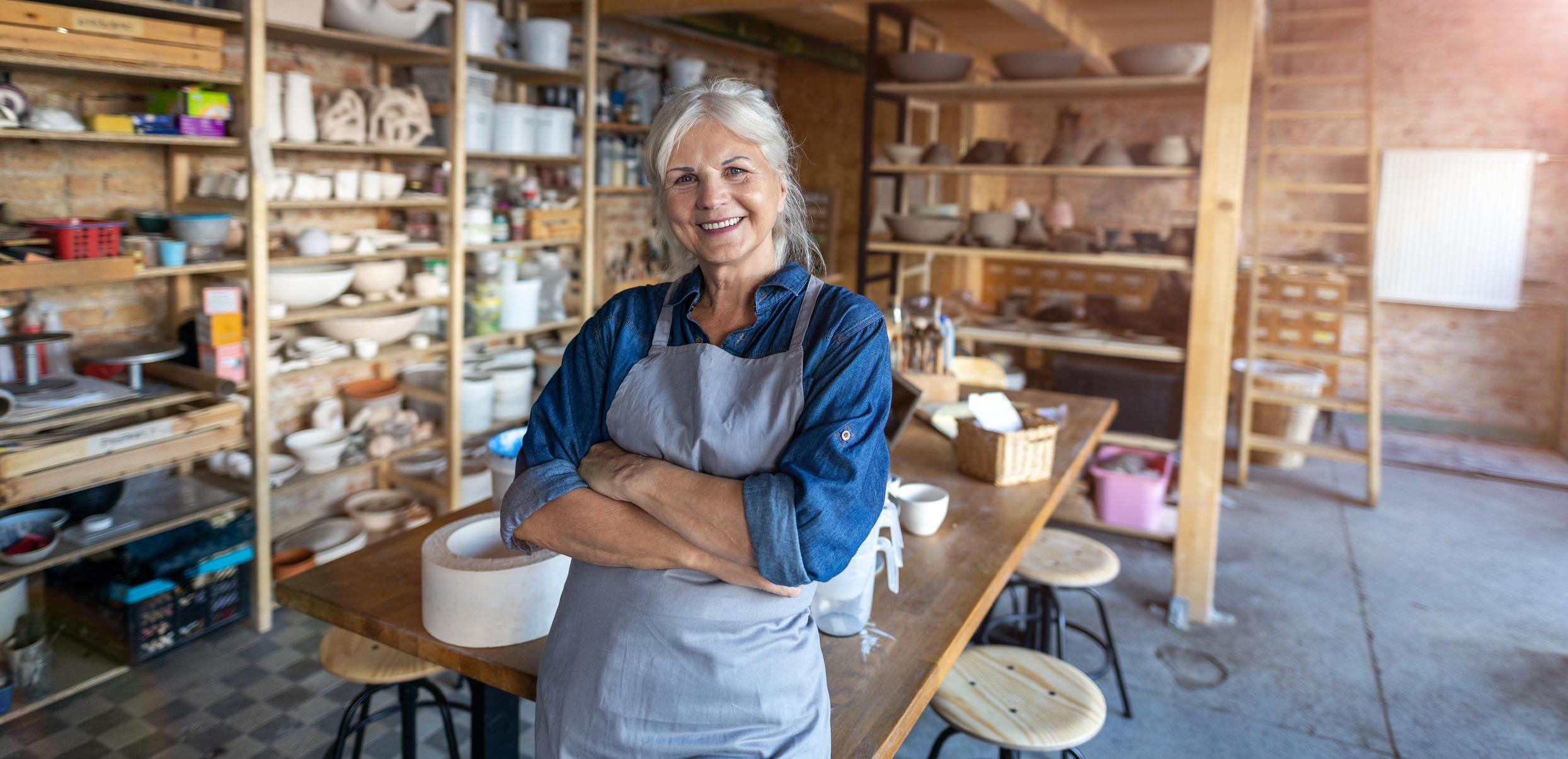MENU
Starting a Business
- Best Small Business Loans
- Best Business Internet Service
- Best Online Payroll Service
- Best Business Phone Systems
Our Top Picks
- OnPay Payroll Review
- ADP Payroll Review
- Ooma Office Review
- RingCentral Review
Our In-Depth Reviews
Finance
- Best Accounting Software
- Best Merchant Services Providers
- Best Credit Card Processors
- Best Mobile Credit Card Processors
Our Top Picks
- Clover Review
- Merchant One Review
- QuickBooks Online Review
- Xero Accounting Review
Our In-Depth Reviews
- Accounting
- Finances
- Financial Solutions
- Funding
Explore More
Human Resources
- Best Human Resources Outsourcing Services
- Best Time and Attendance Software
- Best PEO Services
- Best Business Employee Retirement Plans
Our Top Picks
- Bambee Review
- Rippling HR Software Review
- TriNet Review
- Gusto Payroll Review
Our In-Depth Reviews
- Employees
- HR Solutions
- Hiring
- Managing
Explore More
Marketing and Sales
- Best Text Message Marketing Services
- Best CRM Software
- Best Email Marketing Services
- Best Website Builders
Our Top Picks
- Textedly Review
- Salesforce Review
- EZ Texting Review
- Textline Review
Our In-Depth Reviews
Technology
- Best GPS Fleet Management Software
- Best POS Systems
- Best Employee Monitoring Software
- Best Document Management Software
Our Top Picks
- Verizon Connect Fleet GPS Review
- Zoom Review
- Samsara Review
- Zoho CRM Review
Our In-Depth Reviews
Business Basics
- 4 Simple Steps to Valuing Your Small Business
- How to Write a Business Growth Plan
- 12 Business Skills You Need to Master
- How to Start a One-Person Business
Our Top Picks
Table of Contents
Most business owners spend too much time thinking about how a product should look but far less time thinking about how it should perform. The right design can catch a prospect’s attention, but you’ll lose them if your product is slow or prone to glitches.
That’s where user experience (UX) design comes in handy. UX design ensures you deliver a practical, user-friendly experience to your customers. A skilled UX designer pays attention to details and examines how customers will interact with your product.
A UX designer is part of creating a customer experience strategy, which ensures any problems are caught and corrected before your product hits the market. You’ll make customers happy and waste far less money during the process.
What is a UX designer?
A UX designer is an employee or contractor responsible for optimizing a product’s user experience. Whether you’re building a website, developing a mobile app or creating a physical product, it should be as easy as possible for your client to use.
A UX designer constantly seeks ways to improve your product. They do this by amassing a deep understanding of your company and the problem you’re aiming to solve.
From there, they’ll conduct in-depth user research to discover the target customer’s pain points and identify their needs. They’ll gather survey data, assemble focus groups, schedule individual interviews and conduct A/B testing.
The UX designer will continue building out the offering’s design and conduct user testing to see how people interact with the product by gaining feedback. They’ll in turn modify the design to fix any problems that arise.
UX and user interface (UI) are similar, but UI focuses on specific design elements. For example, in website design, the UI would include buttons, toggles and dropdown lists.
5 ways a UX designer can benefit your business
The right UX designer can help your small businesses become more efficient, user-friendly and innovative. If you’re still not sure you need one, here are five benefits of hiring a UX designer.
1. UX designers can think through systems.
UX designers can see the big picture and organize complex processes into simple solutions. When they talk about design thinking, they get excited about conquering major obstacles – even for innovative, enterprise-level solutions.
If you work in a field with countless moving parts, you need a systems evaluator. Once on your team, these designers will spend their time interviewing stakeholders and users, following the customer journey and sketching different possible pathways from a new perspective.
In your hiring process, be on the lookout for candidates who can turn confusing problems into simple solutions. Give them challenging, complex problems to work on across different departments to sharpen their skills.
2. UX designers can be artistic.
Some UX designers lean toward artistic thinking. They’ll come with portfolios full of sketches, drawings or digital animations, and often an innate talent for compelling visual work.
These candidates might need someone to guide them on the technical side of things. But given how heavily UX design relies on sight, these individuals make great options for companies that need eye-catching prototypes.
Artists know how to distill a concept down to its core and make that core as appealing as possible. Visual work takes practice to perfect, so if you give these artists plenty of time and space to hone their craft, it will pay off. Consider building more creative time into your UX designers’ schedules to maximize their value for your small business.
3. UX designers can gather customer insights.
Some companies have entire positions or departments dedicated to the user experience. But for smaller businesses, the designers must know how to research – and UX designers know how to do this better than most.
When evaluating candidates, ask interview questions about their user outreach experience. Ask for examples of their customer interview skills. See if they ask good questions and show empathy as they research customer insights.
Build research and testing into every product development cycle to allow these designers to improve the product using their unique skills. They know how to find the answers, but they usually need the go-ahead from management to flex their research muscles.
4. UX designers can improve your product.
Some companies, like corporate innovation centers with agile teams, need to see working prototypes as quickly as possible. As natural tinkerers, UX designers are perfect for that role.
If you prioritize speed above all else, look for UX designers with a history of learning new design tools, attending classes and maker fairs, and playing with experimental concepts. Within your team, open lines of communication between designers and developers. This will give the designers an opportunity to create even more efficient processes.
These designers can test out potential new tools you’re considering implementing. If the team wants to implement technology for a new feature, let a UX designer team up with a developer to take a crack at it first.
According to Baymard Institute, roughly 70% of online customers have abandoned shopping carts because of poor UX. That means e-commerce companies can lose substantial business by not prioritizing UX design.
5. UX designers can also be managers.
The best managers are process-oriented people. They stay up to date on trends by reading blogs, following thought leaders and attending meetups with fellow designers. Sure, UX designers know how to do the design work, but they also see how that work fits into your organization’s broader picture.
If your small business wants designers who could one day step into other roles in your company, look for people with a passion for human-centered design, a history of organized efficiency and leadership skills. These designers can speak capably with stakeholders from across departments, and they’ll show an interest in the data their work produces. These high-potential UX designers are introspective about processes and always ready to pursue improvements.
As a business leader, you should allow UX designers to adjust the processes around them after they get some experience in the environment. This improves business processes in the short term and helps designers take steps toward leadership responsibilities in the future.
Looking for the right website and design service? Check out our reviews of the best website builders and design services to find one that can execute your vision.
The future of UX design
Increasingly, small businesses are recognizing the value of UX design. Technology is changing rapidly, and it’s difficult for any single company to stay current on the latest trends. The right UX designer can help ensure product quality and satisfied customers.
The future of UX design likely involves artificial intelligence, augmented reality and virtual reality. UX design makes it possible for companies to create an immersive VR experience.
Additionally, a dedicated UX designer can help your company deliver AI products that anticipate your customers’ needs. For instance, a product that can predict when a client needs to reorder items.
The specific duties of UX designers will continue to change as technology evolves. However, the need for customer-focused design isn’t going away anytime soon.
Rudy Mutter contributed to the reporting and writing of this article.













